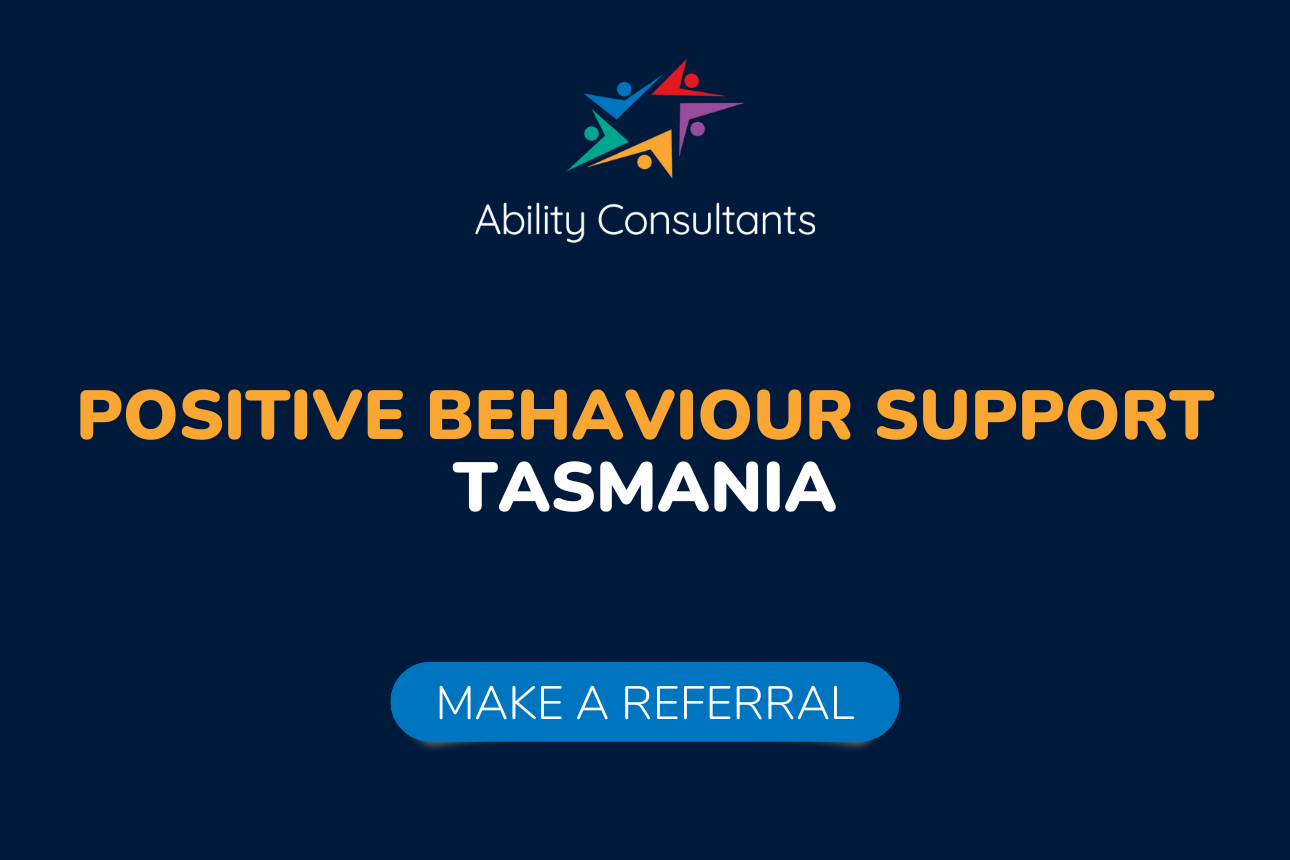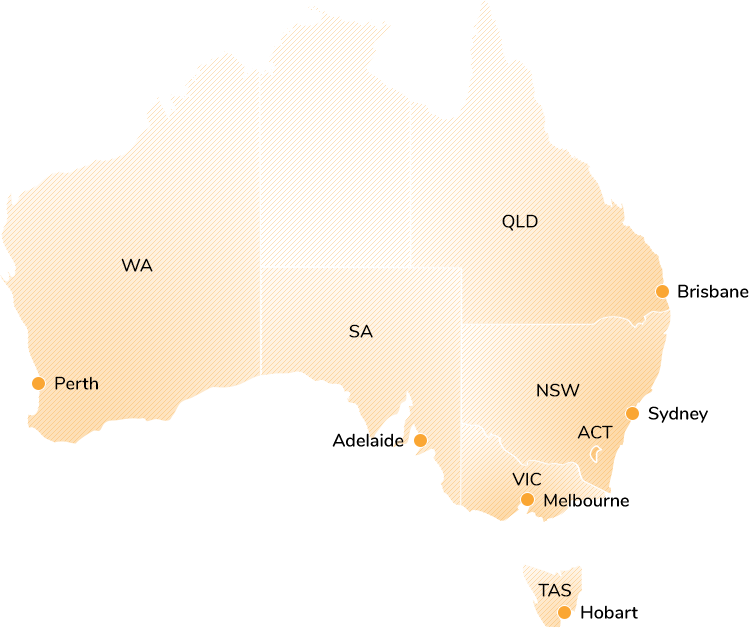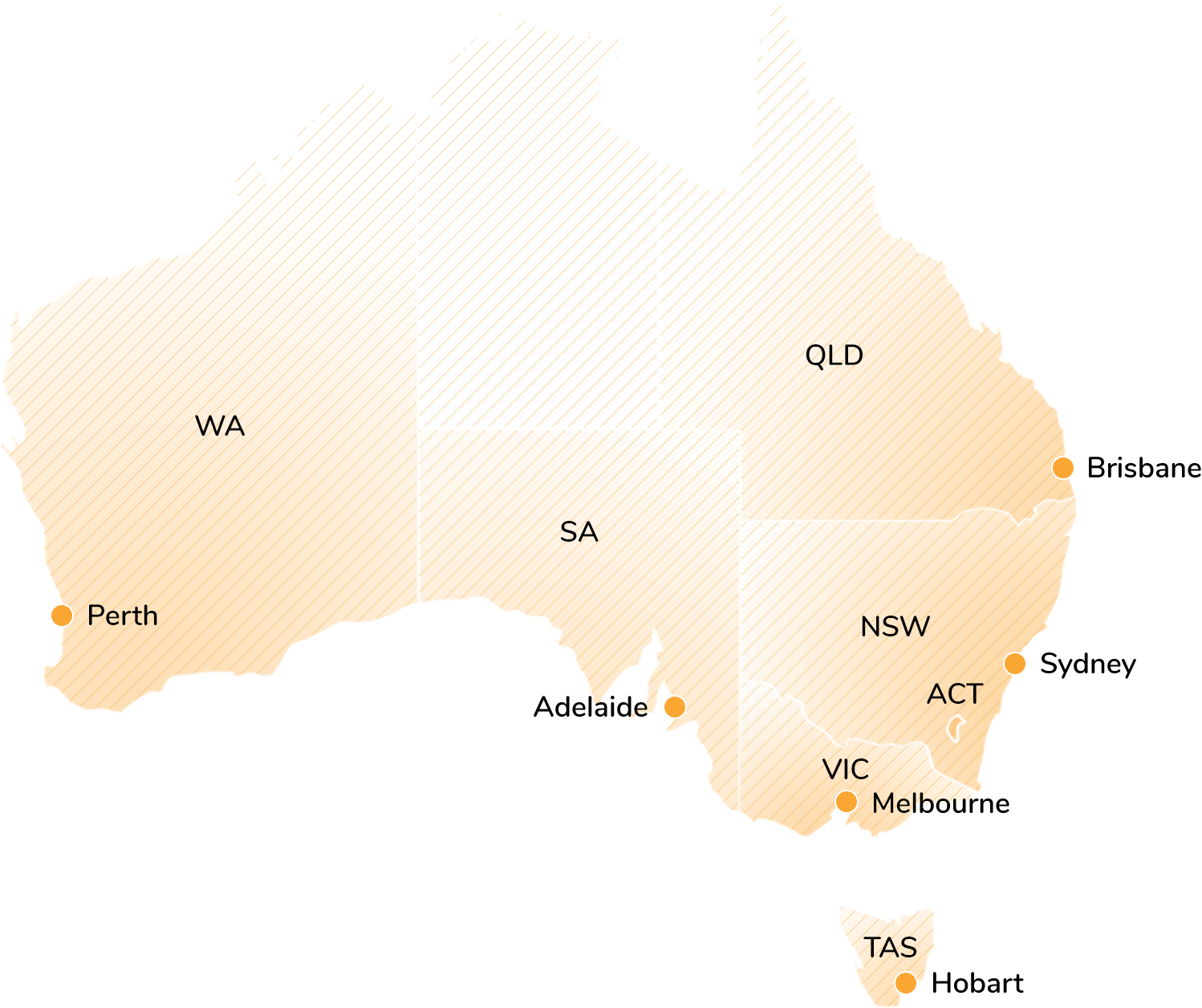Positive Behaviour Support in Tasmania: Meet Senior PBS practitioner Jenny Lancaster

We’re on a mission to create more freedom and social connection for people with disability, and we’re doing this by making Positive Behaviour Support easier to access around Australia.
We’re pleased to introduce Jenny Lancaster, Senior Behaviour Support Practitioner in Burnie, Tasmania. Jenny holds multiple university degrees including a Bachelor of Arts, Bachelor of Teaching and Bachelor of Social Work and she continues to learn about Positive Behaviour Support and inclusion, as well as AUSLAN and braille. She brings to our team a wealth of experience in social work and the disability sector.
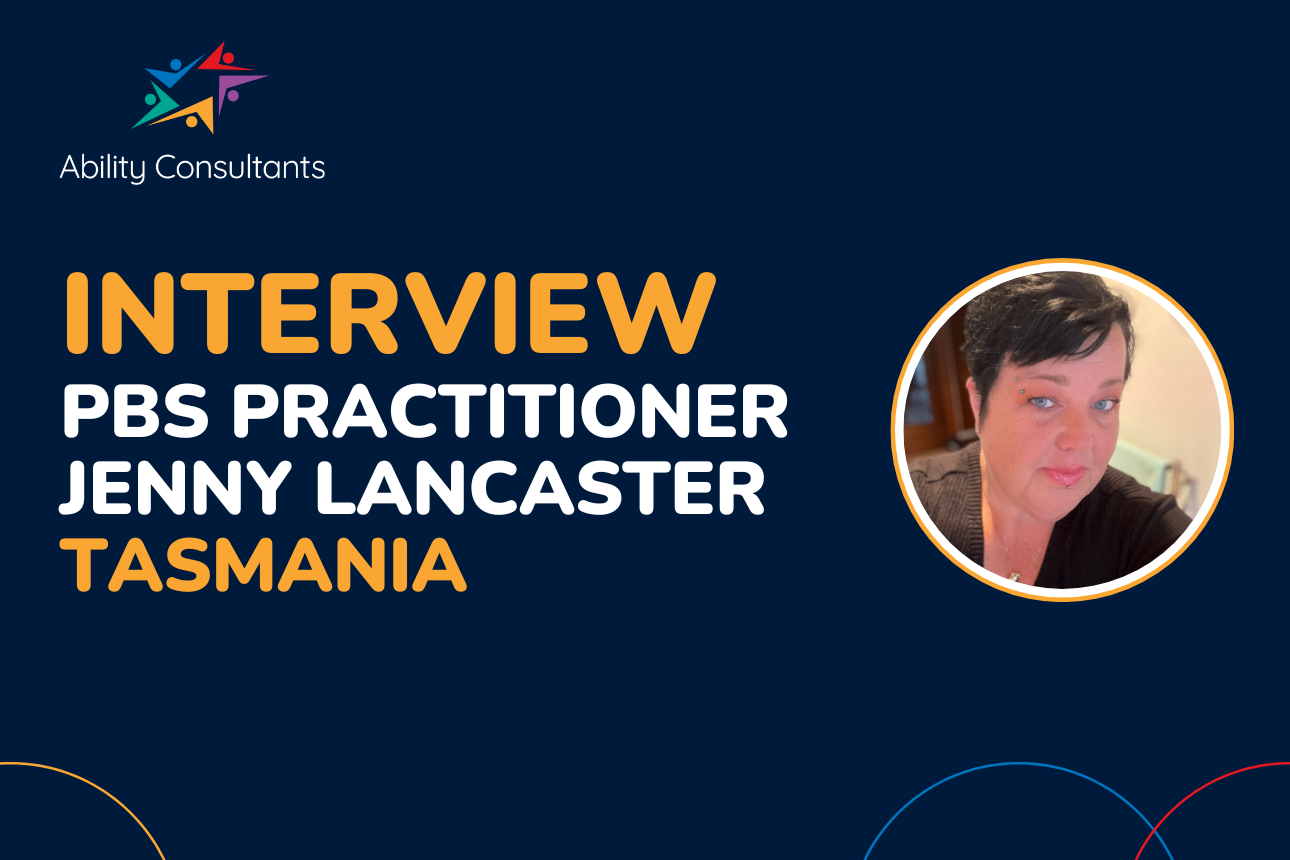
Meet Jenny Lancaster, Senior Positive Behaviour Support Practitioner in Tasmania
Hi Jenny, tell us about you!
Hi everyone.
I’m a Senior Behaviour Support Practitioner working alongside Ability Consultants in the stunning state of Tasmania. At my core I am a social worker who worked previously for the Department of Health and Human Services (DHHS) and the Disability Assessment and Advisory Team (DAAT).
Predominantly, my work took me over the entire North West coast of Tasmania supporting families, staff and participants regarding behaviours of concern. Later I began work with the Department of Health with my main function as a social worker to support clients and families who were transitioning into palliative care. As rewarding as I found these two vocations, when the opportunity arose to work in the private sector I jumped at it, landing knee-deep in a rapidly developing vocational area as a behaviour support practitioner.
For eight years I was a co-owner and manager of a disability support provider where I continued to make connections in the industry that to this day I have maintained. Such connections include NDIS staff, NDIS Commision members, The Office of the Senior Practitioner, occupational therapists, physiotherapists, speech and language pathologists, and other NDIS providers.
In my late twenties I began the process of learning AUSLAN and I am presently learning how to read braille in my spare time — it’s been very rewarding but extremely hard going.
“I love what I do and I do what I love” is what I tend to tell people when they ask me why I entered into such a demanding, and very rewarding role.
My family live in Tasmania and I enjoy a strong and robust relationship with them as well as a number of close friendships with fellow allied health members and childhood friends.
I am a fur mother of two beautiful dogs, Tripitaka and CoCo Mocca Chino, and two gorgeous felines that adopted me on a whim, Mumma and Chilli Con Carne.
I enjoy bush walking, going to the zoo, wandering around art galleries, swimming, four-wheel driving and camping. I love playing the guitar, piano and the harp. I am an avid crocheter and love creating small creatures to gift to the people I visit on my travels — I’m presently creating a Charmander for a friend's soon to be born little fella.
During the wee hours of the morning you can often find me slumped over my computer writing my next novel. As a published author I find myself wondering when I will get to spend quality time with my significant other but somehow I manage.

What drew you to the field of Positive Behaviour Support?
My first two positions with the government prepared me for the field of Positive Behaviour Support. It didn’t take long for me to become enamoured with everything to do with this vocation. From the participants, their families, to the overarching supports umbrellaing the beautiful human beings I work with, it was a given that this was an area of humanitarian supports that I wanted to engage in.
What do you love most about working as a PBS practitioner?
I guess, if I were to put it all down in a tidy little nutshell I would say: I love making the connections with the people I work with and seeing them smile rather then frown or cringe. I love that as an allied health member I have worked beside so many people to support others.
Every little moment, every small achievement on the participant’s side, is another little feather in their cap and is another small step to them achieving a level of independence that we all strive for in life.
What is central in your approach to Positive Behaviour Support?
When I am approached to provide Positive Behaviour Support I:
- go in acknowledging that we all have behaviours — whether concerning or not;
- recognise that we are working with human beings who should be supported with the tender and professional care that I, myself, would expect from others;
- focus on person-centredness — providing quality supports with compassion and empathy ;
- know to never be afraid to be silent — silence is the key to listening and when I listen I hear so much more than the words spoken.
Positive Behaviour Support in Tasmania
You provide Positive Behaviour Support along the north coast of Tasmania, from Burnie and beyond. What’s it like delivering PBS in your community?
As a Tasmanian resident for 30 years, I find delivering PBS support in my community rewarding and challenging. Tasmania is a small island and having been in the industry for a decade there are few people in the industry that do not know me or have not been supported by me as a Mentor Social Worker through the University of Tasmania.
I am quite proud of the fact that I have mentored and helped train six wonderful colleagues who have now joined the PBS industry in one way or another.
Being a local woman and professional can also be quite challenging as I am referred onto people who I have worked with previously in one way or another. One challenge for me occurred when I began supporting a beautiful participant with whom I had worked with whilst at the North West Regional hospital. Providing quality supports was not the question, nor the concern, but losing them to a disease ten months after commencing support was a devastating blow. This, I must say, is the most challenging thing that I have ever experienced in my position.
But, along with the sorrow comes the joys of working in my area. Walking downtown and spying one of my participants engaging in the community, smiling and sharing morning tea or lunch, and enjoying life as we all love to do is quite possibly the biggest reward I could receive whilst working in Tasmania.
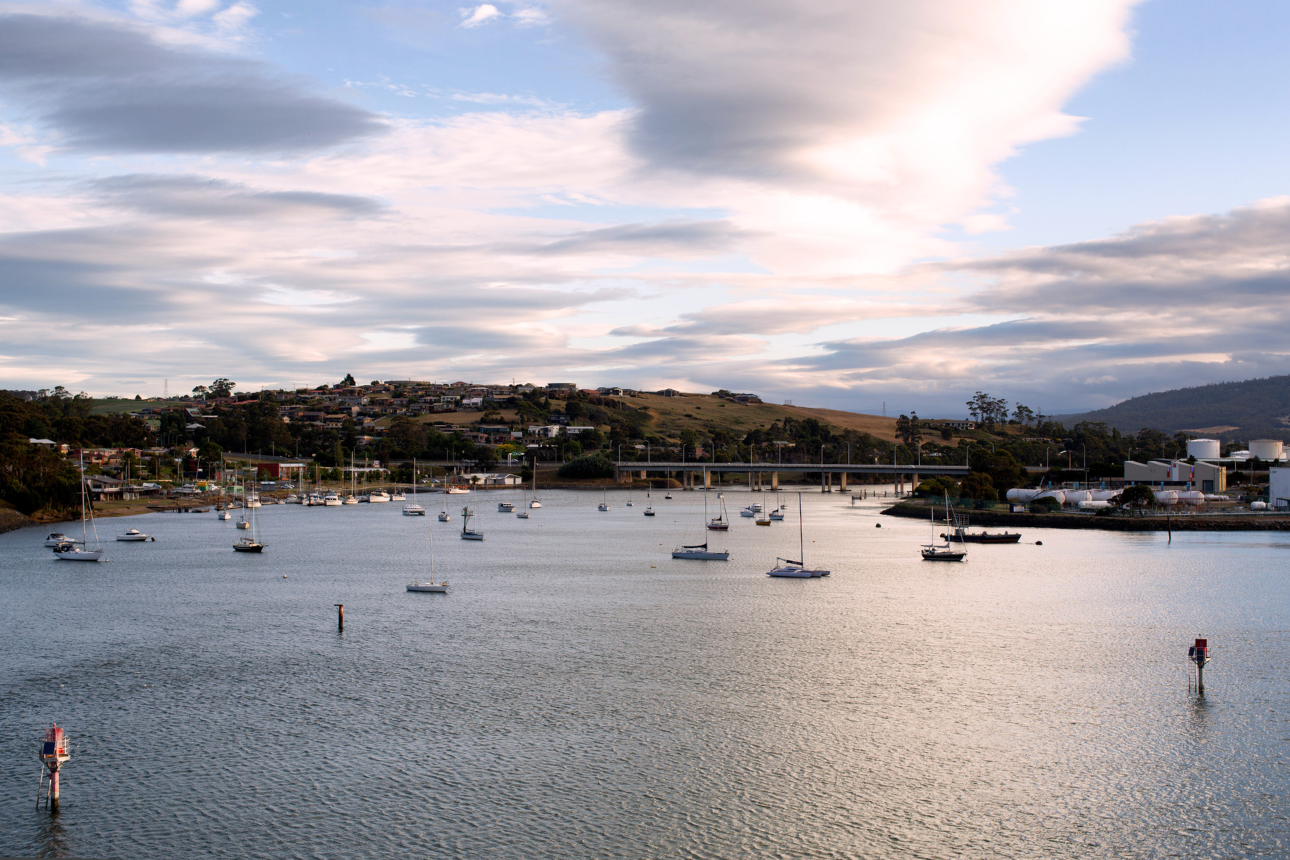
Which towns do you support in Tasmania?
I support participants and their families for the whole of Tasmania. I’m not afraid to travel and I go where I am needed, whether you’re in Burnie, Stanley, Devonport, Launceston, Hobart or beyond.
During your career as a social worker, were you able to see how Positive Behaviour Support could impact on a person with disability? Can you share an example with us?
I certainly had many opportunities to witness and engage in Positive Behaviour Support.
Whilst working for Disability Services I was called upon to unravel the mysteries as to why a particular person (lets call them Client X for this scenario) was walking into a common room shared by six other participants and sitting on another participant's lap. Staff reported that this was highly distressing for the other participants and a staff member stated that it may be sexualised behaviour.
After observing for a number of days, I noticed that Client X was indeed walking into the common room and immediately sitting on another participant’s lap. Client X did not particularly care about whose lap they sat on.
I also noticed that Client X was the last to enter everyday in the morning due to their enjoyment of personal care time, where they liked to luxuriate under the warm water of the shower.
Client X was often eating breakfast in the kitchen after the other residents had eaten and retired to the common room. I observed that although there were seven residents living in the shared home, only six lounge chairs were provided for the residents.
In Client X’s behaviour support plan, I noted that Client X’s behaviour was not sexually orientated but was orientated towards finding somewhere to sit and enjoy the company of their peers whilst watching television. I also noted that as the facility only provided siz chairs for seven residents it is highly recommended that the provider of supports purchase and place one more chair in the common room to which Client X could sit on and enjoy down time with their peers.
The provider organised the recommended recliner within 24 hours and Client X no longer sat on the laps of their peers. All residents were happy with the outcome.
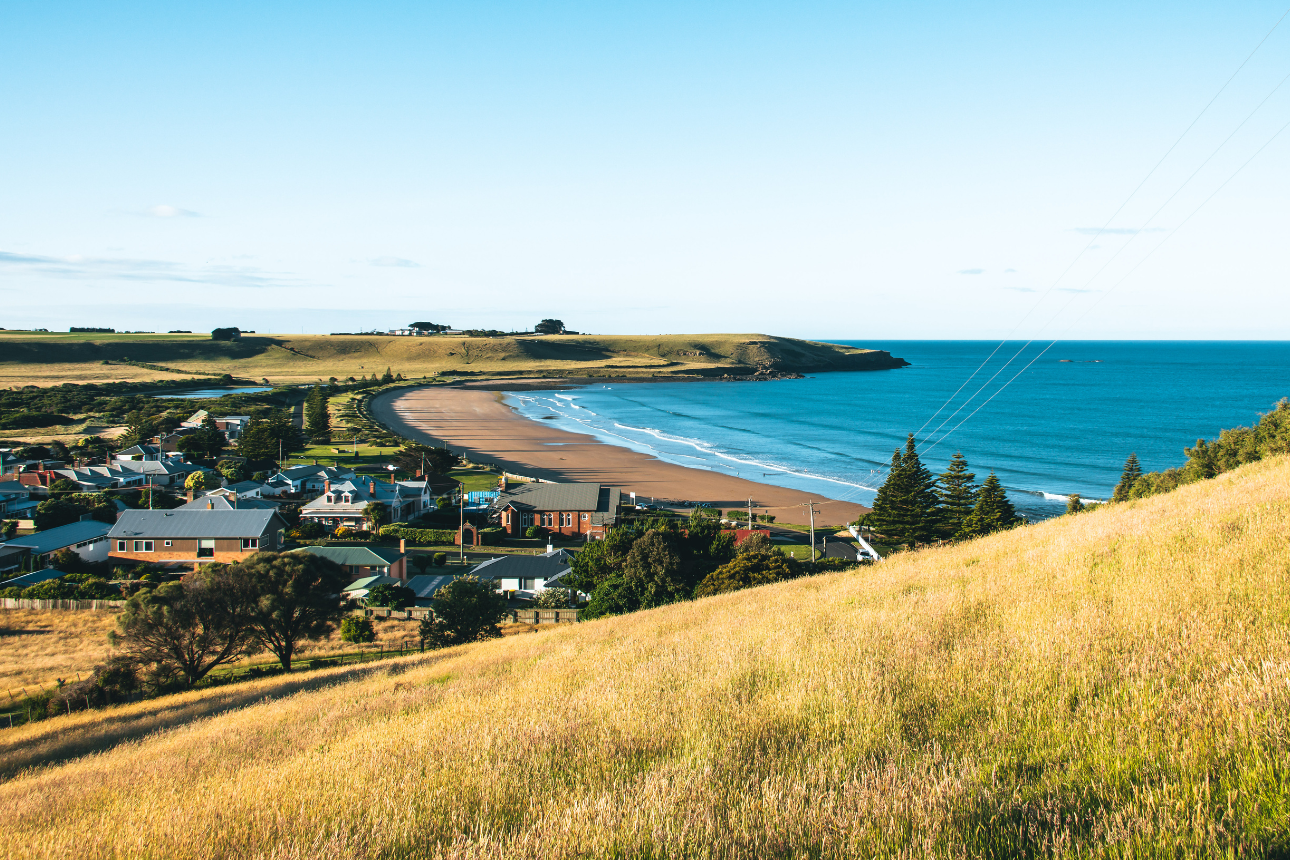
Careers in Positive Behaviour Support
Positive Behaviour Support is grounded in evidence-based practice. How do you stay up-to-date with developments in your field?
I am constantly searching for learning opportunities and this search usually begins with key understandings of vast areas of disability including:
- Autism Spectrum Disorder
- Dementia
- ADHD
- Intellectual disability
- Acquired Brain Injury (ABI)
- Early onset of diseases
- Huntingtons disease
- Multiple Sclerosis
- The differing effects in early childhood to aged care
My search usually begins through my professional sources such as:
- Allied health practitioners
- Department of Education
- Health
- University of Tasmania
- Australian Association of Social Workers
- Dementia Australia
- Autism Australia
I am constantly scrolling the NDIS Quality and Safeguards Commission website for recommendations and admittedly follow links provided regarding reading sources recommended for Positive Behaviour Support.
Engaging with training through Ability Consultants has also been a key area of upskilling in my field of work.

With experience as a social worker, what would you say are some of the key skills you’ve been able to transfer over to Positive Behaviour Support?
I have been asked this same question a number times over the years as a social worker. As a social worker I was uniquely trained in holistic supports that recognises the person at the centre (sound familiar?).
Person-centred support is not a new concept for social workers — we engage in this level of support on a daily basis with everyone we work with. We are a part of the umbrella that overarches and safeguards the person whom we work with, ensuring dignity and independence.
Often it is the social worker who is engaged first, to make recommendations for further supports that can engage with the participant and their families to ensure quality of life. Such supports include other allied health and formal supports who can engage with the participant, supporting them through scaffolding and personal and life upskilling.
Social workers often make recommendations for future supports such as allied health, respite, formal 1:1 supports, housing, community access, safe travel and consent.
I often say to fellow practitioners and social workers that we are not out there to change the world… but we also refuse to allow the world to change those we support. We strive for fairness, equality and quality of life for those we work beside. As a PBS practitioner this is what I work tirelessly towards.
What good things have you seen happen because of people’s efforts towards inclusivity in the disability sector?
I have observed that the language around disability and has switched to the positive use of words such as “ability”, that is that we can all live life with happiness and independence through appropriate supports, and “abled”, that is that we can do it if you scaffold and engage us in learning and practising the skills.
What are your thoughts on working with Ability Consultants?
I adore working with Ability Consultants. I find Ability Consultants’ positive and energetic ethos regarding supporting their practitioners, providing learning opportunities, mentoring, and having managers (and a CEO) who are approachable, empathetic, and compassionate — one of the most valuable things provided.
Working for Ability Consultants has pushed me further into the realm of PBS and I will be forever grateful to them for replying to that very first email I sent out and for the safe envelopment of their professional embrace when they accepted me as a peer.
Make a referral for Positive Behaviour Support in Tasmania
If you’re an NDIS participant in Tasmania and you’d like to get started with Positive Behaviour Support, please make a referral here on our website.
You are also welcome to contact us online using our contact form or by calling our team on 1300 694 625.
Positive Behaviour Support Resources
Here’s a useful video explaining Positive Behaviour Support:
Here are some useful guides about Positive Behaviour Support:



